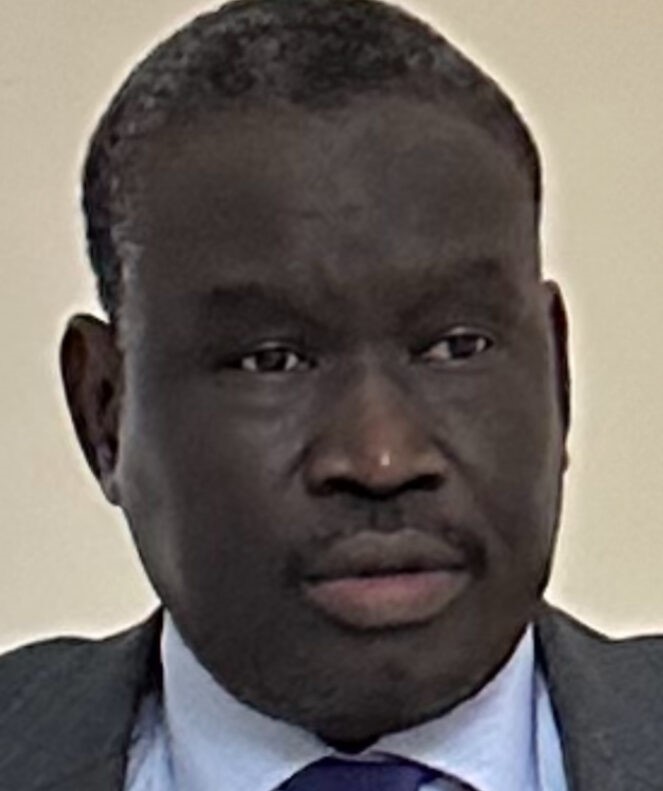As the discourse over the future of South Sudan intensifies both regionally and internationally, the country finds itself engulfed in a cloud of uncertainty, escalating tension, and a dangerous recycling of past crises under new slogans.
As the official timeline for elections draws closer, public trust continues to erode, political arrests were deepening, and the economy collapsing under structural deficits, mounting debt, and financial isolation.
Most alarming at this juncture is the arrest of key opposition leaders, particularly from the Sudan People’s Liberation Movement-in-Opposition (SPLM-IO)—a clear violation of the 2018 Revitalized Peace Agreement. Instead of paving the way for national consensus ahead of elections, these actions signal a return to political exclusion and render the transitional framework hollow.
Amid this scenario, a new narrative has been promoted around Dr Bol Mel, the Vice-President for Economic Cluster. He is increasingly presented as a savior figure for the struggling economy and a stand-in for political partnership. However, a close reading of his background and rise to power raises fundamental questions about what he truly represents.
Bol Mel, who is under US sanctions for corruption and abuse of public funds, was never known for political leadership or administrative reform. His companies—reportedly once used as conduits for public contracts—were now said to be nearing insolvency, facing mounting lawsuits and contractor disputes.
Politically, he lacks a public base, a coherent vision, or any grassroots legitimacy. His rapid elevation to the top echelons of power far exceeds his experience or capability. So, why was Bol Mel advanced to these senior roles despite President Salva Kiir’s awareness of his limitations?
The answer lies, not on merit, but on the regime’s need for a pliable financial face— politically weak but symbolically useful— who can be used to deflect international pressure without disrupting the regime’s core structure. This is a textbook example of instrumental elitism, where power structures employ functional but disposable figures to project reform without actual transformation.
However, this tactic carries consequences.
Entrusting Bol Mel with the burden of a failing economy and a blocked political transition— without empowering him to enact real change —leaves him dangerously exposed. Many suspect he is being groomed not as a successor, but as a sacrificial buffer to absorb blame and shield the inner circle when the system buckles.
Domestically, few see Bol Mel as a legitimate leader. Even within the elite, he is largely perceived as a transitional figurehead out of depth. The risk, therefore, is not only to him— but to the very credibility of the system that projects him.
At the same time, religious institutions— particularly the churches—have stepped forward with rare moral clarity. In a symbolic act of protest, they have launched a 70-day campaign of prayer and fasting, appealing to the nation’s conscience and calling for justice, accountability, and a genuine recommitment to peace.
Regionally and internationally, concern is rising. Observers are questioning Juba’s seriousness in organizing credible elections, and whether the Kiir-led regime is capable of producing a stable post-transition order. There is growing anxiety that South Sudan is heading not toward a democratic milestone— but toward institutional implosion or creeping authoritarianism dressed in electoral language.
What South Sudan needs is not a new face, but a redefinition of the state project—a return to political consensus, institutional trust, and public inclusion. This cannot be achieved without bold measures: the release of political detainees, the formation of a transitional rescue government, and a credible economic recovery plan under independent oversight.
Amid growing speculation about Bol Mel’s future, the truth is becoming clearer: he is not Salva Kiir’s political heir, nor an organic product of the SPLM’s revolutionary lineage. Instead, he is the outcome of a post-independence economic alliance—built on oil contracts and informal patronage networks— that has now been repackaged into a political role out of strategic necessity.
In the absence of legitimate transitional leadership and with the opposition silenced, Kiir has begun marketing Bol Mel as “one of the sons of the Red Army”—a gesture meant to cloak him in revolutionary nostalgia. However, in reality, this image is artificially constructed and deployed to buy time and ease pressure, not to deliver transformation.
His appointment reflects the regime’s need for a flexible, loyalty-driven figure who can serve as a financial and political façade—one who will take the fall if the transition fails, while protecting the inner circle from accountability.
The danger now is that Bol Mel may attempt to enforce a new political order by force, should elections remain stalled and space for inclusive politics continue to shrink. This would replicate a familiar pattern seen across Africa: businessmen-turned-politicians attempting to substitute military leverage for popular legitimacy—with disastrous results.
Political theory warns us that any authority that rests on coercion rather than social contract cannot sustain itself. If Bol Mel follows this path, his political fate will likely be isolation, public rejection, or even internal abandonment once his role expires.
If he genuinely aspires to be a national leader —not just a regime instrument—Bol Mel must commit to the peace agreement, demand electoral integrity, and open dialogue with all stakeholders. Pursuing authority through force or executive decree will only alienate him and accelerate his political downfall.
In a fragile state like South Sudan, it is not enough to be presented as a son of the Red Army. One must become a son of legitimacy, of accountability, and of the collective national vision.
The author, Samuel Peter Oyay, is a South Sudanese political activist, strategist, and commentator with over two decades of experience in governance and management. He can be reached on samualjago@yahoo.com
The views expressed in ‘opinion’ articles published by Radio Tamazuj are solely those of the writer. The veracity of any claims made is the responsibility of the author, not Radio Tamazuj.




